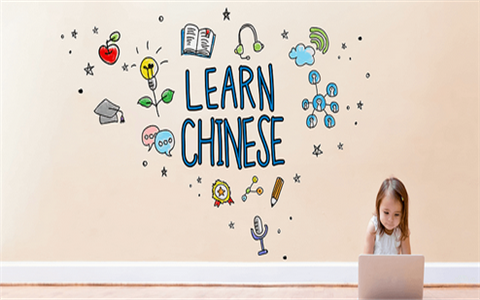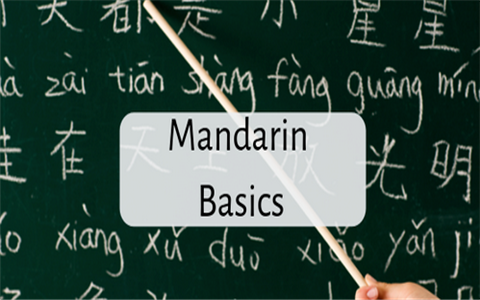
发布时间:2020-09-21
飞龙在天,转瞬即逝
——为何汉语学习在英国逐渐受到冷落
在英国,受地缘政治影响,曾一度掀起一股学习汉语的热潮。然而才短短几年时间,随着国际和国内政局的变化,英国这种“汉语热”正在逐渐消退。究其原因,除了学习汉语比较困难,更重要的一点是,近年来英国政界及舆论对中国态度的转变,让很多英国人对于学习汉语的前景不再那么乐观。然而对于中国超高净值家庭来说,中文作为母语,是代际沟通的桥梁,继续保持母语的学习,也是家庭为孩子选择海外学校时的重要考察因素。本期,我们分享一篇编译自经济学人(The Economist)2020年8月29日发表的一篇文章。文章版权归原作者所有。

2013年,时任伦敦市长的鲍里斯·约翰逊在鼓励英国儿童(包括他自己的孩子)学习汉语时,曾公开表态“我爱中国”。如今7年过去,他对中国的爱没那么深了,而英国学习汉语的热潮似乎也跟着退去了。约翰逊公开表态亲华,让英国富裕家庭将汉语视为孩子未来发展的重要投资。2015年,英国首家中英双语幼儿园Hatching Dragons迎来了第一批32位小小语言学习者。时至今日,已经有超过500名儿童从这里毕业,幼儿园学费约为每人每月1,881英镑。但是幼儿园首席执行官Cennydd John却一意难平,因为孩子5岁毕业后“很难再有机会继续接受中英双语教育”。
英国小学阶段仅有不到3%的学校提供汉语课程,中学阶段仅有4%的公立学校开课,更多是私立学校在汉语热时期增设的汉语课程,约占24%。但是对于英国家长来说,学校是否开设汉语课程已经不像3年前那样举足轻重了,The Good Schools Guide总编Ralph Lucas表示,一部分原因在于“英国家长的心态变化,期望孩子去中国追求职业发展的劲头已经大打折扣。”另外,熟练运用汉语并非易事,中国不再是所谓的黄金机遇,以及近期发生的中国香港民主动荡等一系列事件,让投资汉语教育的想法蒙上一层阴影。英国考试相关数据上也有所体现。代表英国八大国内学历授予机构的英国学历联合委员会数据显示,2015年参加A-level中文考试的学生人数为3099名,参加GCSE中文考试的学生人数为3710名。而至2019年,这一数据分别降至2272和3201名学生。

汉语学习的倡导者认为,儿童学习汉语的真正驱动力在于复杂的地缘政治因素。然而,真正投入时间(以及金钱)学习汉语的孩子却未必能收获正向的回报。曾工作于北京和上海公共关系领域的Alex Wilson表示“我认识到如果同事用英语和我沟通,工作会变得很难办,这是我学汉语唯一能感受到的现实优势。”英国亚非研究院汉语专业的学生毕业5年后,有望拿到27,000英镑年薪,但经济学毕业生则能拿到38,000英镑。Yun Zhen在英国雷丁大学就读教育学硕士专业,毕业后有意成为一名汉语教师。但是她表示“说实话我觉得机会不多。”目前她正在寻找教学领域的工作,但是并不仅限于汉语教学,而是“任意学科”。汉语难学的特点倒是始终吸引着热爱学术的学生和严格的家长。Hatching Dragons幼儿园首席执行John先生已经注意到,现在的英国家长已经能逐渐看到“双语环境会带来认知优势,学汉语相当于在提升语言学习能力。”然而,汉语本身在英国已经逐渐退出热门领域,更多家长选择培养孩子的计算机语言能力。Wilson先生表示“学习Python这种几个月就能学会的编程语言更容易找到工作,相比之下,学习汉语就有些浪费资源了。”
Original English Texts
Flying dragon, passing fashion
Why the study of Mandarin seems to be in decline
“I love china,” declared Boris Johnson, then mayor of London, in 2013, exhorting British children, his own included, to study Mandarin. Seven years on, he is a lot less keen on China, and the vogue for studying Mandarin seems to be fading.
When Mr Johnson was declaring his Sinophilia, well-to-do parents saw Mandarin as a good investment in their children’s future. In 2015 Hatching Dragons (pictured), Britain’s first bilingual English-Mandarin nursery, opened its doors to 32 little linguists; it has since taught over 500 children, for around £1,881 a month per child. But Cennydd John, the nursery’s chief executive, laments that there is “almost no option” for children to continue their bilingual education once they leave at the age of five.
Fewer than 3% of primary schools in England offer Mandarin. Many independent schools followed the fashion: 24% of them offer Mandarin, compared with 4.4% in state schools. But finding a school that offers Mandarin is no longer the priority it was for parents three years ago, says Ralph Lucas, editor in chief of The Good Schools Guide. Part of the reason is that “the perception of China as a place where you would want your child to make a career has taken a severe knock”. Learning Mandarin to a useful level is difficult, and China “doesn’t seem like the big golden opportunity it was before”. Recent events, such as the crackdown on democracy in Hong Kong, further “take the gloss off” the idea of investing in a Chinese education.
That shift shows up in exam figures. In 2015, 3,099 students took a Chinese a-level and 3,710 took a GCSE. In 2019 those figures had dropped to 2,272 for A-level and 3,201 for GCSE, according to the Joint Council for Qualifications, an organisation which represents the eight largest national providers of qualifications.
Advocates of learning Mandarin say that a more complex geopolitical situation is exactly why children should be practising their tones. But those who have invested the hours (and the cash) don’t always reap the rewards. “The only real advantage of me speaking Chinese was having a much better understanding of how difficult it was for my Chinese colleagues to operate in English,” says Alex Wilson, who worked in public relations in Beijing and Shanghai. Graduates from the School of Oriental and African Studies can expect to be earning £27,000 five years after graduating if they studied Chinese, or £38,000 if they studied economics. Yun Zhen is studying for a Masters in Education at the University of Reading and hopes to be a Mandarin teacher. But “honestly, I don’t see many opportunities,” she says. Now she’s looking for teaching experience in “any subject”.
The difficulty of learning Mandarin will always attract academic kids and pushy parents. Mr John of Hatching Dragons notes that parents increasingly “see bilingual immersion for its cognitive benefits. For them, Chinese is (almost) secondary to the linguistic input”. The idea that Mandarin itself is a hot ticket is fading. Better to train the children in a computer-programming language. “Compared to how much more employable you can make yourself by learning something like Python, which you can learn in a few months,” according to Mr Wilson, “Mandarin seems like an inefficient use of resources.”
该文章转载自雷梭勒家族办公室,如有侵权,敬请告知删除。
Sooswiss为您提供
瑞士方向私人管家式的定制服务:
1)家族传承 2)财富管理 3)瑞士投资
4)居留计划 5)税务优化 6)家族治理
更多资讯请登录网站 www.sooswiss.com
